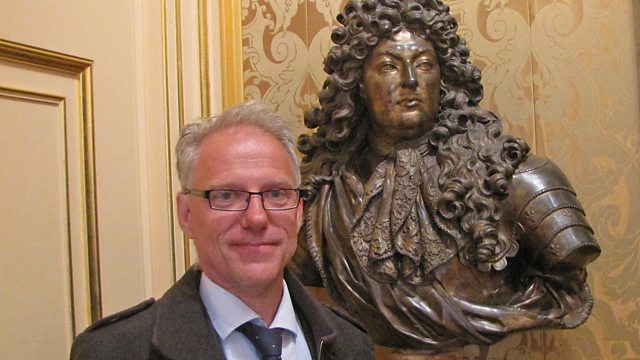Episode 2
Marking the 300th anniversary of Louis XIV's death, Professor Julian Swann considers how the process of resisting the Sun King's aggression was the making of modern Britain.
As we approach the 300th anniversary of the death of Louis XIV, Professor Julian Swann uses a string of historic London locations to tell the story of Louis XIV's major role in the making of modern Britain.
In this second of two programmes, Westminster Abbey, the Houses of Parliament, Guildhall, Spitalfields, Trafalgar Square and many other sites reveal how resisting the Sun King's military adventurism shaped Britain's parliamentary system and its economy.
Swann tells the story of how the Dutch prince, William of Orange, assembled an invasion force to wrest the Catholic James II from the English throne. His main aim was to ensure Protestant England joined the alliance of European powers fighting Louis XIV. He achieved that objective, but at the price of surrendering key powers as joint-monarch to parliament. Thus, our constitutional monarchy was established, with parliament overseeing all key aspects of government policy.
Finding the cash to fight the Sun King spawned the Bank of England. This was the vital instrument for ensuring, via the National Debt, that Britain's long-term fight against France could be afforded - all the way up to Waterloo.
Swann also considers that the need to protect Britain's growing international trade from the threat of Louis XIV's France was a major factor in the development of empire, and that Britain's industrial revolution was a by-product of the innovation required to resist Louis XIV and his successors.
Triumphant at Waterloo, Britain could look back at Louis XIV's reign as the starting-point for her rise to global superpower status.
Produced by Andrew Green
A Singing Wren production for 大象传媒 Radio 4.
Last on
More episodes
Previous
Next
You are at the last episode
Broadcast
- Wed 10 Jun 2015 11:00大象传媒 Radio 4

